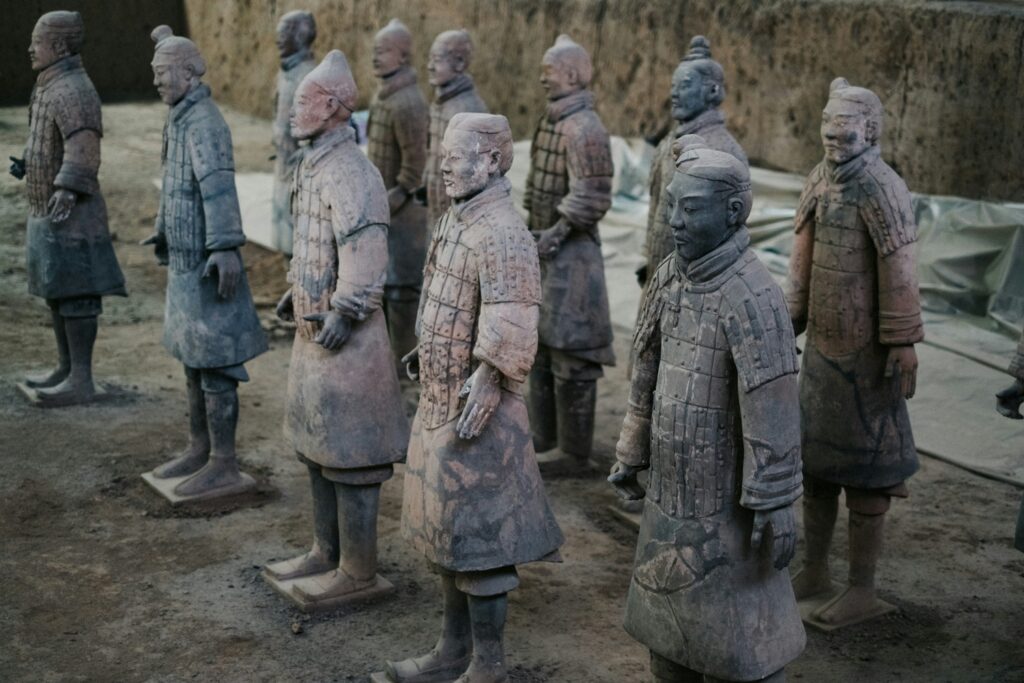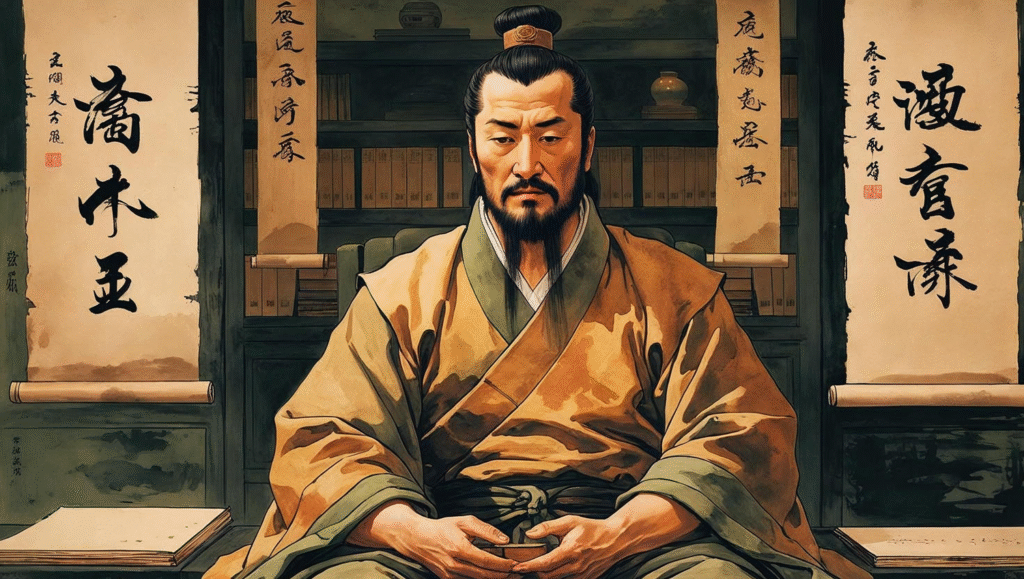My favorite quote is by Sun Tzu: “Let your plans be dark and impenetrable as night. When you move, fall like a thunderbolt.”
I read that in The Art of War, a book said to be written by him, which contains manipulative, err, smart ways to outsmart an enemy.
Sun Tzu didn’t advocate for dishonesty in a moral sense. He saw deception as a tactical necessity in situations where lives, resources, and entire nations were at stake.
He was popular during his time because he made a huge difference in how Chinese military soldiers dealt with wars.
Before he existed, commanders followed traditional and overused strategies. Everyone did the same thing, so no one could have an advantage.
Sun Tzu Was a Chinese Military Strategist
Sun Tzu was an ancient Chinese military strategist whose ideas have shaped military thinking across centuries and continents.
Although there is some debate about the specifics of his life, most agree he lived during the late Spring and Autumn Period, roughly 771 to 476 BCE.
He believed that war wasn’t about brute force but about understanding, planning, and outmaneuvering the enemy.
His strategies emphasized discipline, deception, and forethought.
Sun Tzu Might Not Have Written The Art of War
Sun Tzu is widely credited as the author of The Art of War, a short but dense treatise on military strategy composed of 13 chapters.
However, some historians argue that it may have been a collaborative effort or compiled after Sun Tzu’s lifetime, possibly by later followers.

How to Win a War According to Sun Tzu
Sun Tzu’s strategies in The Art of War were about winning smartly. Let’s break down some of his insights.
Know Your Enemy and Yourself
If you understand your own strengths and limitations, and can also assess your enemies’ capabilities, you will always be a step ahead.
This could mean gathering intel. Spies can be used to gain information about the other armies, which Sun Tzu recommended.
When applied to personal life, it is by simply reading the room. If you know the people you are dealing with, you can get what you want from them.
Stalking is another way, of course.
Avoid the Strong and Strike the Weak with Minimal Resources
Instead of confronting your enemy where they are strongest, why not go where they are vulnerable? This is common sense.
Picking battles means choosing where to act for the best outcome with the least cost.
Conserve your energy and strike where your efforts will have the greatest impact. Pick your battles wisely to avoid wasting time and resources.
Pretend You Are Weak and Attack When Least Expected
Deception is one of the core principles in The Art of War. Sun Tzu believed that misdirection could win battles before they even began.
Keep your enemies guessing. If they underestimate you, they become careless. If they overestimate you, they hesitate. Either way, you are in control.
Don’t reveal your hand until the right moment. Strike when least expected.
Plan But Quickly Adapt to Changes
Sticking too tightly to a plan can backfire if the situation changes. So, plan but quickly adapt to changes. Rigidity is dangerous.

Remember That It Is Better to Defeat the Enemy Without Fighting
Perhaps Sun Tzu’s most profound principle is this: “The supreme art of war is to subdue the enemy without fighting.”
It is possible if the warriors, or even normal people like you and me, outmaneuver enemies psychologically and diplomatically.
The Art of War was first published many centuries ago, but it is relevant today. We can apply the strategies to our daily lives.
Today, we don’t need to start a war to create enemies. We can simply post our opinion on social media, and many will have a problem with it.












